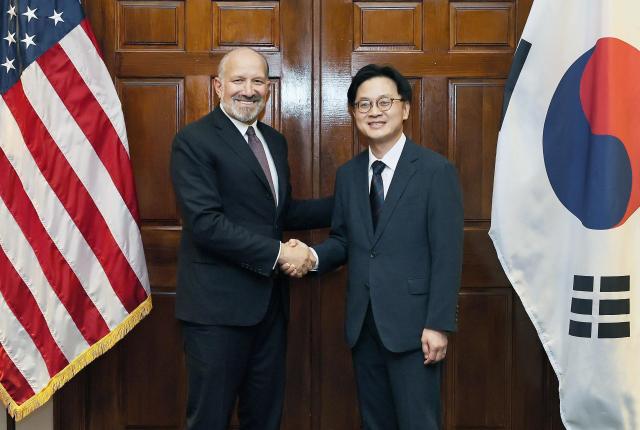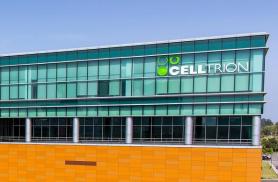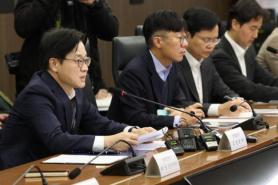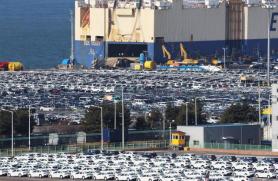
SEOUL, October 06 (AJP) - South Korean Trade Minister Kim Jung-kwan said Monday that Seoul and Washington have reached a "considerable level of understanding" on concerns over possible turbulence in South Korea's foreign exchange market caused by the ongoing tariff negotiations with the United States.
Speaking to reporters at Incheon International Airport after returning from New York, Kim said both sides were "narrowing their differences" on how to minimize the deal's impact on the won-dollar exchange rate. "I believe there was a shared recognition of how sensitive our foreign exchange market could be in this deal," he said.
According to the presidential office, Kim held a follow-up meeting on October 4 (local time) in New York with U.S. Commerce Secretary Howard Lutnick. The trip was arranged quietly and known to only a handful of senior aides. Kim played down speculation that it had been a secret mission, saying, "It just happened to take place during the holiday, and I had the time. I only met Secretary Lutnick."
The minister's visit marks the latest in a series of negotiations aimed at finalizing the July framework agreement under which Washington would lower reciprocal tariffs on South Korean goods from 25 percent to 15 percent, while Seoul would commit to a 350 billion dollar (about 493 trillion won) investment package in the U.S.
The two sides have yet to sign a memorandum of understanding, with disputes lingering over the investment's structure, profit-sharing arrangements, and South Korea's demand for a currency swap with the U.S. Federal Reserve to safeguard the won. Seoul has argued that without such a safety net, a large-scale dollar outflow could shake its financial markets.
"There were discussions on the swap," Kim said. "It's not that progress was made, but both sides acknowledged how significant and sensitive this issue is for our market." Asked whether the swap could take the form of an unlimited facility, Kim said, "I don't know whether it will be unlimited, but there was a shared understanding that the deal itself poses a serious challenge for our currency market."
He also said the two sides did not discuss specific investment targets or President Donald Trump's previous description of South Korea's contribution as an "upfront payment." "There were no such talks," he said.
A recent survey by broadcaster SBS and polling firm Ipsos found that 88 percent of respondents viewed the U.S. investment demand as excessive, while 55 percent said the government was handling the negotiations properly.
Financial markets have remained cautious amid the uncertainty. The KOSPI fell 2.45 percent last week to close at 3,386.03, slipping below the 3,400 mark for the first time in nine trading sessions. President Lee Jae Myung has warned that withdrawing the full investment amount without a swap arrangement could trigger a crisis similar to the 1997 Asian financial meltdown.
Kim said follow-up meetings would likely take place "in the near future," possibly before President Trump's visit to South Korea for the Asia-Pacific Economic Cooperation (APEC) summit in Gyeongju later this month, where he is also expected to meet Chinese President Xi Jinping.
Trump is scheduled to attend the ASEAN summit in Kuala Lumpur from October 26 to 28, hold a bilateral meeting with Japan's incoming Prime Minister Sanae Takaichi, who is expected to take office in mid-October, and then travel to South Korea around October 29 for the APEC meeting. Seoul aims to narrow differences ahead of the summit, though officials say the government will not compromise key principles in pursuit of a deal.
Copyright ⓒ Aju Press All rights reserved.




